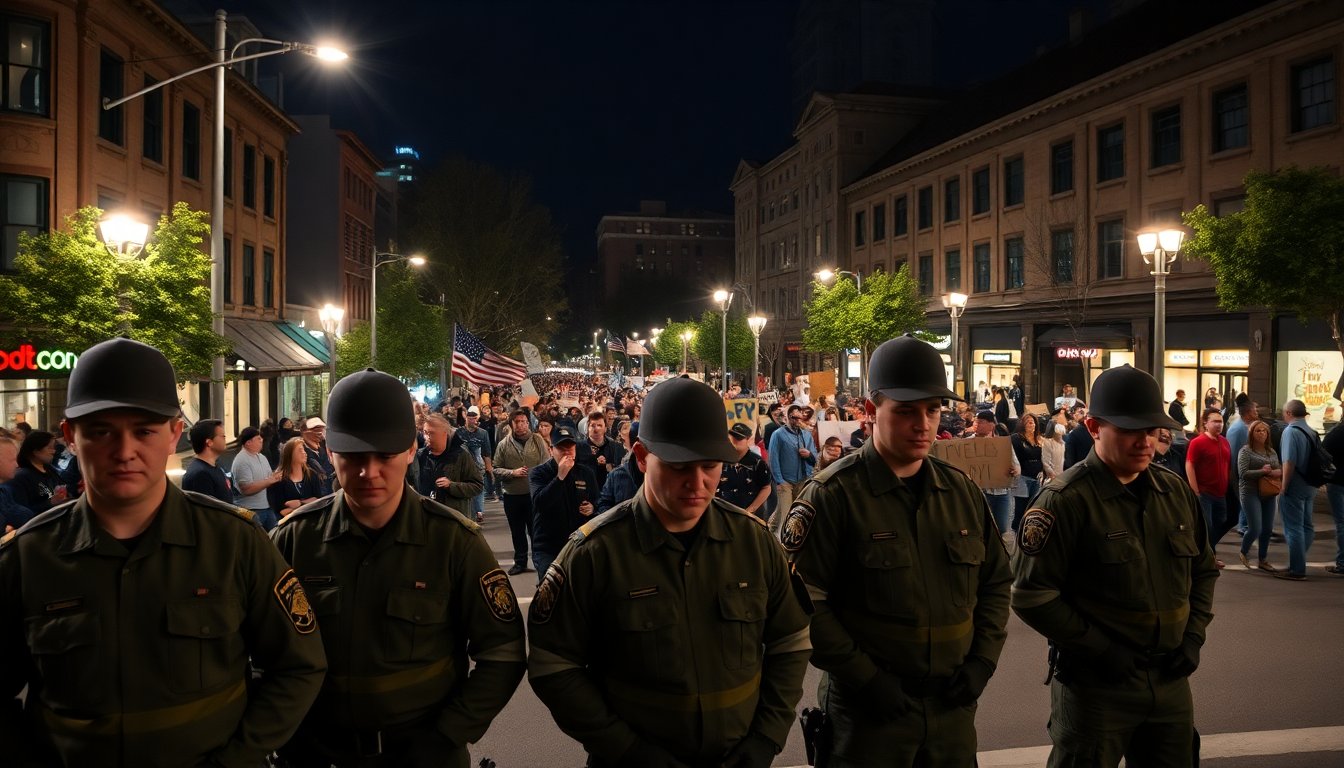Table of Contents
A federal judge has delivered a significant ruling, declaring that President Donald Trump’s effort to deploy the National Guard to Portland, Oregon, was unlawful. This decision is pivotal in the ongoing discussion surrounding the use of military forces in domestic contexts, especially during protests linked to immigration enforcement. The ruling not only counters the administration’s narrative but also highlights the necessity of upholding constitutional principles.
Karin Immergut, the judge appointed by Trump, issued a ruling that permanently prohibits the administration’s military action. This represents a crucial legal setback for Trump concerning the use of military personnel in response to civil unrest. The decision indicates a rising concern among legal experts regarding the potential overreach of the president’s actions, which may infringe upon civil liberties.
Context of the ruling
The controversy began with ongoing protests outside an Immigration and Customs Enforcement (ICE) facility in Portland. These protests, which gained momentum in June, were driven by widespread dissatisfaction with immigration policies. The administration labeled the situation as an insurrection and argued that military intervention was required to restore order. However, the court determined that the president’s justification lacked a solid legal basis.
During the trial, Judge Immergut acknowledged that while some violence occurred in June, the subsequent protests were mostly peaceful, with only isolated incidents of unrest. She stated, “Even with great deference to the President’s determination, the deployment of troops was not warranted.” This remark highlights a significant discrepancy between the administration’s depiction of the protests and the reality observed by local law enforcement.
Reactions to the decision
Oregon Attorney General Dan Rayfield described the recent ruling as a significant victory for the state. He emphasized that the president cannot unilaterally deploy the National Guard without appropriate legal justification. In comments shared on social media, he stated, “The courts are holding this administration accountable to the truth and the rule of law.” This perspective highlights growing concerns regarding the misuse of military powers in civilian situations.
Portland Mayor Keith Wilson also expressed his support for the ruling, asserting that the presence of federal troops in the city was unnecessary. “The number of federal troops needed in our city is zero,” he declared. His remarks reinforced the message that local authorities are capable of managing protests without military intervention.
Legal implications and broader context
A recent ruling has established a significant precedent concerning presidential authority over local governance. Legal experts indicate that this case may encourage challenges to similar military deployments nationwide. The court’s decision underscores that military force should be reserved for genuine emergencies, such as armed conflicts or invasions, rather than civil unrest.
In her detailed 106-page ruling, Judge Immergut criticized the administration’s characterization of Portland as a “war-ravaged” city. This portrayal was countered by the defense, which demonstrated that local law enforcement effectively managed the protests, with instances of violence being sporadic and largely contained. The judge’s ruling could lead to increased restrictions on the military’s involvement in civil unrest situations.
Future considerations
The Trump administration plans to appeal the recent ruling, which has significant implications for federal-state relations. This legal battle highlights the ongoing tensions between state sovereignty and federal authority. As the case advances, it may reach the U.S. Supreme Court, where interpretations of military engagement in domestic matters will be closely examined.
The situation in Portland is a critical test case for the balance of power within the U.S. legal system. Ongoing protests continue to influence the national dialogue on immigration and civil rights. This ruling serves as a reminder of the legal frameworks designed to protect citizens from potential federal overreach.
The judge’s decision to block the deployment of the National Guard reinforces the rule of law and emphasizes that no president is above accountability. This ruling may significantly impact how military forces are used in domestic affairs.


